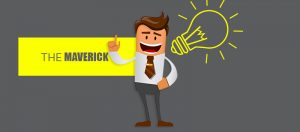As our political, social, and economical landscapes seem to be unraveling at its seams, and all control appears to be lost, it can be easy to throw one’s self headfirst into their work. In our work, we can gain a sense of control and confidence in the future as we secure our finances and advance our careers.
Workaholism, a very real thing which organizations like Workaholics Anonymous are dedicated to combating and healing, is a destructive and addictive lifestyle. People more than ever, as they are stuck at home without much connection and hope for the future, may be fueled with anxiety and susceptible to this harmful disease.
According to licensed psychotherapist and professor emeritus at the University of North Carolina in Charlotte, Bryan E. Robinson, slowing down from work can not only fend against workaholism but actually lead to greater productivity and effectiveness in work and greater happiness and fulfillment in life.
Chill Out
In his book #Chill: Turn Off Your Job and Turn On Your Life, Robinson recounts and reflects on his life as a workaholic. In admirable honesty, he writes, “Work was my sanctuary — my source of stability, self-worth, and protection against the uncertainties of life. I worked hard, yes, but I used work to defend myself against unwelcome emotional states— to modulate anxiety, sadness, and frustration.”
It got so bad Robinson recounts, that he would stuff work papers in his pants like a bottle of vodka during his family vacations, finding any excuse to duck out and “work.” At a certain point, he was chain-smoking, had no close friends, was snapping viciously at colleagues, and was unable to remember things that led his family to believe he had early-onset Alzheimer’s.
Robinson somehow found his way into Workaholics Anonymous, took on a therapist himself, and began practicing yoga and meditation. He writes, “what ultimately brought me through the ordeal was the practice of mindfulness meditation— present moment attention to my feelings and a compassionate, nonjudgmental connection with myself.”
Here are 7 tips to being more mindful throughout the day from Robinson.
- Embrace Your Flaws – For many of us it is easy to list our weaknesses and for some of us, nearly impossible. Robinson encourages us to look at our flawed parts and imagine ourselves hugging those parts. Accepting what you can change and accepting what you cannot.
- Walk One Step At a Time – It can be easy to worry about the future, especially now. Worry about tomorrow, tomorrow, and simply care for the issues and challenges of today.
- Prepare Yourself – Instead of immediately responding to that difficult email, take a moment, and breathe. Go for a walk or treat yourself to a special coffee before you sit down and write.
- Focus on the Upside – When you are faced with bad news, look at the upside or the potential benefit that could come. We never know what the future holds. Robinson suggests when you find out how much in taxes you have to pay this year, think, “wow, business was so good that I have to pay all these taxes!”
- Allow Wiggle Room – Instead of trying to get as much done as possible by writing an email in between meetings, or scheduling meeting after meeting, intentionally make space for yourself. Allow for 10-30 minute gaps of free time in your schedule to enjoy a coffee with a colleague or a moment to read something in the news (that isn’t negative).
- Avoid Multitasking – Many people still think multitasking is possible despite overwhelming research that says otherwise. Just focus on one task at a time instead of jugging multiple. You’ll get more done.
- Carpe Diem – Robinson says to think about the ones you love and ask, “Am I living my daily life in concert with what’s most important to me?” Carpe Diem means in Latin, “seize the day.” Maybe you need to tell someone you love them or ask for forgiveness. Go do that today and not tomorrow.
More Productive, Effective, Happy, and Fulfilled
According to Robinson, once he learned to slow down from work, he paradoxically became more productive and effective. He adds that he was happier and more fulfilled. What would you do to be more productive, effective, happier and fulfilled?
If any of these activities as recommended by a recovering workaholic, an accomplished psychotherapist, and published author could lead to it, wouldn’t you give it a try?
Business & Finance Articles on Business 2 Community
(53)
Report Post




